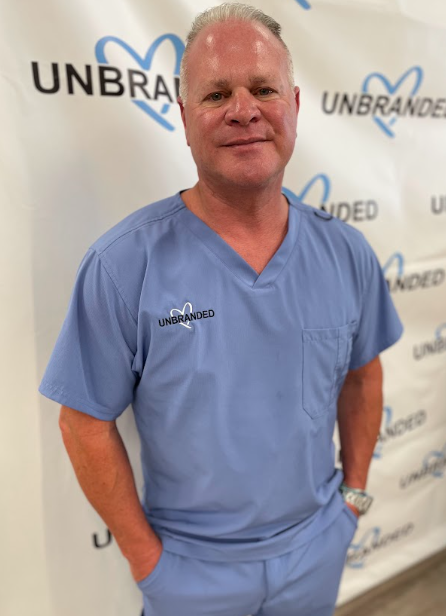
Football was a family affair for Scott Vaughan. His grandfather was a football official in the NCAA’s Southeastern Conference. Vaughan’s father also worked as a SEC official before becoming a back judge in the National Football League.
Vaughan never intended on becoming a football official, but as fate would have it, he eventually followed in his dad’s and grandpa’s footsteps.
“The first college conference I got into was the Southland Conference. From there, Conference USA and from there the Big 12. I was happy in the big 12, I liked being in the power five conference, but my dad wanted me to go to the SEC. I knew my grandfather had officiated football, but I didn’t know that he had officiated in the SEC and I knew my dad had officiated in the SEC before he got to the NFL. So, dad wanted me to be the only third generation SEC football official in the world and so that’s why I ended up going to the SEC,” Vaughan told me.
Vaughan went on to spend 24 years as a football official.
During those years he was a back judge, just like his father. The two already had a strong relationship. The experience of football officiating that they had in common only made their bond stronger.
“I spoke to him before and after every game for 21 years, or he was there with me. When he passed away and I didn’t have that the last three years that I worked in the SEC, then I just kind of lost the love for it,” said Vaughan.
Having a degree and occupational experience in physical therapy, Vaughan opened First Down Healthcare & Aesthetics in Metairie in 2016. As the name of the business indicates, most of the services that Vaughan and his partners offer deal with aesthetics including body contouring, wrinkle reduction and skin rejuvenation. In 2020, Vaughan bought a specific laser capable of removing tattoos.
“When I did my first tattoo removal in January 2021 and when the patient came back six weeks later to get a final treatment, I was totally blown away at the amount of ink that was removed from the tattoo from that one treatment. So, I immediately saw that there is something that I can do to give back to the community using this technology,” Vaughan said.
A short time later, he and a friend founded “Unbranded”, a nonprofit organization dedicated to helping survivors of human and sex trafficking get rid of tattoos and other physical markings that were put on them when they were trafficked or abused.
“I knew about sex trafficking, human trafficking, but I never knew they were branded by their pimp or trafficker to claim ownership, to show which pimp or which trafficker owns that person. When I started doing the research on it, it really moved me,” said Vaughan.
“When you put a person’s name on your body, you’re pretty much saying well you own me and that’s what I did all my life allowing a man to pretty much own me. I had multiple names on me. I can’t even explain the feeling. It’s like you’re nothing and you’re somebody’s property and their full control over you. I was just very ashamed and embarrassed. I felt foolish. It’s just not a good feeling to have when you’re standing in front of the mirror and you see all these names on you,” one survivor told me.
I recently met a survivor who I’m going to call Donna. She came from the Midwest but has been living in Louisiana and along the Gulf Coast for almost a decade now. Through Unbranded’s free services, Donna has undergone several sessions with Vaughan to remove tattoos that were placed on her during years of abuse. Donna says the process has been life changing. So far, Vaughan has helped more than three dozen survivors. He believes he’s actually getting more out of the experience than the survivors. Find out why, listen to my conversation with Vaughan and Donna here.
